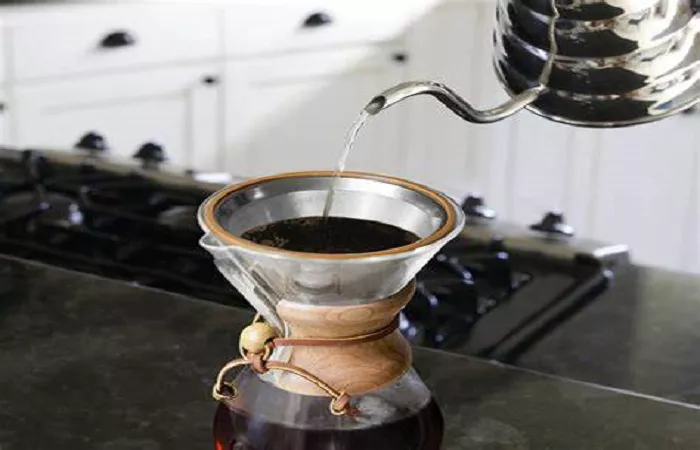Filter coffee is one of the most popular brewing methods worldwide. Many people enjoy it every day. The process involves passing hot water through ground coffee beans. A paper or metal filter separates the liquid coffee from the grounds. This method produces a clean and flavorful cup.
Choosing the right coffee for filter brewing matters greatly. Not all coffee beans work equally well. The best filter coffee comes from high-quality beans prepared correctly. This article will explain how to select perfect beans for filter coffee.
Understanding Coffee Beans
All coffee comes from two main species: Arabica and Robusta. Arabica beans generally taste better. They have more complex flavors and less bitterness. Robusta has more caffeine but often tastes harsher. For filter coffee, Arabica is usually the better choice.
Coffee beans grow in different countries. Each region produces beans with unique flavors. The soil, climate, and processing methods affect the taste. Some regions grow beans particularly suited for filter brewing.
Best Coffee Origins for Filter Coffee
Ethiopian coffee often works wonderfully in filter brewing. Many coffee experts consider it ideal. Ethiopian beans tend to have floral and fruity notes. They create bright and complex filter coffee. The Yirgacheffe region produces especially good filter coffee beans.
Colombian coffee also performs well. These beans often have balanced flavors. They might taste nutty or chocolaty with mild fruitiness. Colombian coffee makes approachable filter coffee that many people enjoy.
Kenyan coffee can make excellent filter brew too. It typically has bold berry flavors and bright acidity. The AA grade beans from Kenya work particularly well. They produce flavorful and aromatic filter coffee.
Brazilian coffee tends to be more nutty and chocolatey. It often has lower acidity. These characteristics make it good for people who prefer milder filter coffee. Brazilian beans create smooth and easy-drinking cups.
Coffee Processing Methods
How coffee cherries get processed affects flavor. There are three main methods: washed, natural, and honey.
Washed processing creates clean flavors. The coffee fruit gets removed before drying. This method highlights the bean’s inherent qualities. Washed coffees often work well for filter brewing. They produce bright and defined flavors.
Natural processing involves drying the whole coffee cherry. This gives fruitier and sweeter flavors. Some natural process coffees make great filter coffee. They can add interesting fruity notes to the cup.
Honey processing is in between washed and natural. Some fruit remains during drying. It creates sweet and complex flavors. Certain honey process coffees work beautifully in filter brewing.
Roast Level for Filter Coffee
Roast level significantly impacts filter coffee results. Light to medium roasts generally work best. They preserve the bean’s original flavors. Light roasts keep more acidity and delicate notes. Medium roasts bring out balance and body.
Dark roasts often overpower filter coffee. They can taste bitter and smoky. The subtle flavors get lost. For filter brewing, avoid very dark roasted beans. Stick with lighter options for better results.
Freshness Matters
Fresh coffee makes much better filter coffee. Beans taste best within weeks of roasting. Stale coffee loses its flavors and aromas. Always check the roast date when buying beans.
Whole beans stay fresh longer than pre-ground. Grind the beans just before brewing. This preserves the flavors. Oxygen and moisture make coffee go stale faster. Store beans in an airtight container away from light.
Grind Size for Filter Coffee
The right grind size is crucial for filter coffee. Medium-fine works well for most filter methods. It looks similar to table salt. Water flows through at the proper speed. This extracts flavors evenly.
Too fine grind can make coffee bitter. Water flows too slowly. Too coarse grind makes weak coffee. Water passes too quickly. Adjust grind size based on your brewer and taste preference.
Single Origin vs Blends
Single origin coffee comes from one place. It shows unique regional characteristics. Many coffee lovers prefer single origins for filter brewing. They offer distinct and interesting flavors.
Blends combine beans from different places. They aim for consistent flavor profiles. Some blends work well for filter coffee. They often provide balanced and approachable tastes. Try both to see which you prefer.
Recommended Coffee Brands for Filter Brewing
Several specialty coffee brands focus on filter coffee. They source high-quality beans and roast them appropriately. These brands often provide roast dates and origin information.
Local roasters can offer excellent filter coffee options. They typically have fresher beans than large brands. Visit roasters in your area and ask for filter coffee recommendations.
Some international specialty roasters ship worldwide. They select beans specifically for filter brewing. These can be great options if you don’t have local roasters.
Brewing Variables
Even the best beans need proper brewing. Water temperature should be between 90-96°C. Too hot water extracts bitter compounds. Too cool water under-extracts flavors.
Brew time affects the result. Typically 3-4 minutes works well for filter coffee. Adjust based on your taste preference. Clean equipment is essential for good flavor. Old coffee oils can make fresh coffee taste bad.
Tasting and Adjusting
Taste your filter coffee critically. Note the flavors and balance. If it tastes sour, try finer grind or longer brew time. If bitter, try coarser grind or shorter brew time.
Experiment with different beans and brew methods. Small changes can significantly improve results. Keep notes to remember what works best. Developing your perfect filter coffee takes practice.
Conclusion
The best filter coffee comes from high-quality Arabica beans. Light to medium roasts from Ethiopia, Colombia, or Kenya often work well. Washed or honey processed beans typically perform nicely. Freshness and proper grinding are essential.
Remember that personal preference matters most. Try different origins and processing methods. Discover which flavors you enjoy in filter coffee. With good beans and proper technique, you can brew excellent filter coffee at home. Enjoy the process of exploration. Great filter coffee offers wonderful variety and satisfaction. The journey to find your perfect cup is part of the pleasure.


